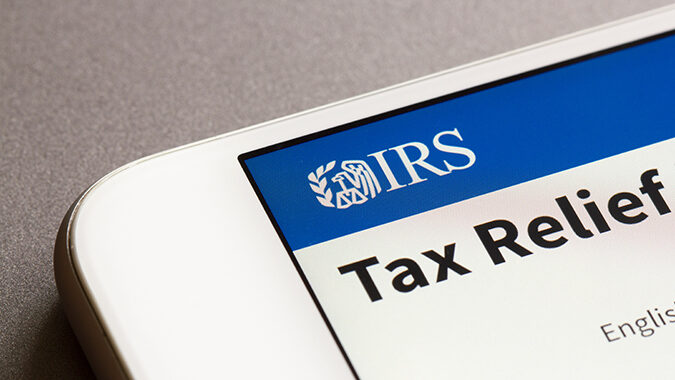The IRS said this week it will waive penalties for individuals and businesses that filed late 2019 and 2020 tax returns – and it will also issue automatic refunds to 1.6 million taxpayers who have already paid late-filing fines.
To qualify for this relief, any eligible income tax return must be filed on or before Sept. 30, 2022.
In addition, the IRS is also waiving certain late penalties for businesses required to file information returns and individuals who were required to report some international transactions.
Waiving the failure-to-file penalties will help individuals and businesses impacted by the pandemic and enable the IRS to focus its resources on a huge pandemic-related backlog of tax returns, the agency said.
As of May, the IRS had a backlog of 21.3 million unprocessed paper returns, including many from businesses that have been waiting extended periods to receive Employee Tax Retention Credits for which they are eligible, in addition to their regular refunds.
The taxpayer relief that the IRS announced Wednesday applies to the failure to file penalty, which is typically assessed at a rate of 5% per month and up to 25% of the unpaid tax when a federal income tax return is filed late. This relief applies to forms in both the Form 1040 and 1120 series, as well as others listed in IRS Notice 2022-36.
Taxpayers that have already paid failure to file penalties for 2019 or 2020 returns will automatically receive more than $1.2 billion in refunds or credits. Most payments will be completed by the end of September.
“This penalty relief will be automatic for people or businesses who qualify; there’s no need to call,” IRS Commissioner Chuck Rettig said in a press statement on Wednesday.
In addition, the IRS is providing penalty relief to banks, employers and other businesses required to file various information returns, such as those in the 1099 series. To qualify for relief, the notice states that eligible 2019 returns must have been filed by Aug. 1, 2020, and eligible 2020 returns must have been filed by Aug. 1, 2021.
Because both deadlines fell on a weekend, a 2019 return will still be considered timely for purposes of relief provided under the notice if it was filed by Aug. 3, 2020, and a 2020 return will be considered timely for purposes of relief provided under the notice if it was filed by Aug. 2, 2021.
The notice provides details on the information returns that are eligible for relief.
The notice also provides details on relief for filers of various international information returns, such as those reporting transactions with foreign trusts, receipt of foreign gifts, and ownership interests in foreign corporations. To qualify for this relief, any eligible tax return must be filed on or before Sept. 30, 2022.
Penalty relief is not available in some situations, such as when a fraudulent return was filed, when the penalties are part of an accepted offer in compromise or a closing agreement, or when the penalties were finally determined by a court.
Other penalties, such as the failure to pay penalty, are not eligible, the IRS said.

